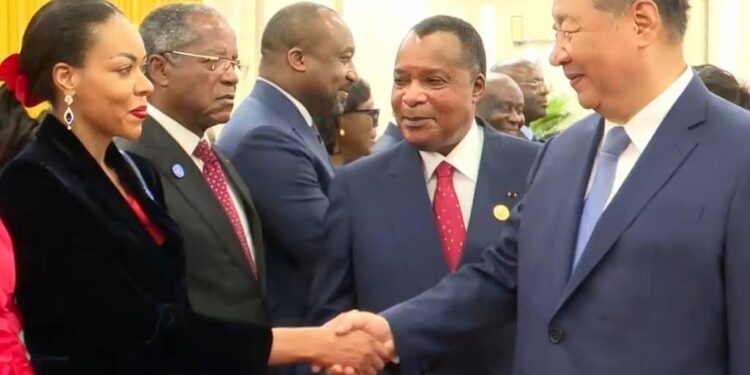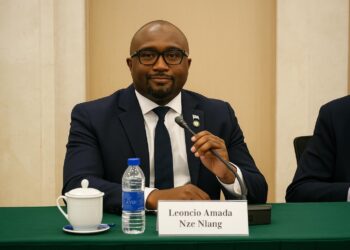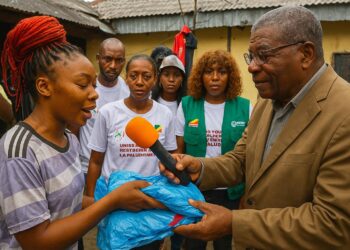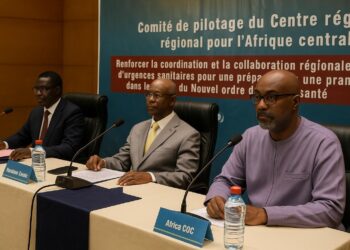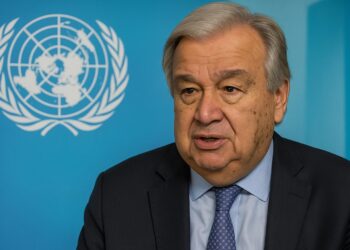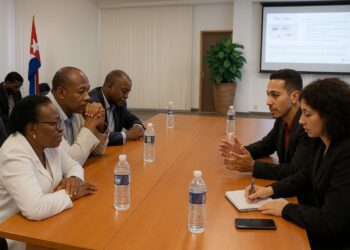Setting the Beijing Mission
President Denis Sassou Nguesso will arrive in Beijing in early September at the invitation of President Xi Jinping, marking his first state mission to China since the pandemic era. The trip comes as Brazzaville seeks urgent fiscal space and proof of investor confidence amid shifting global alignments.
Timing is strategic: the Republic of Congo co-chairs the African segment of the Forum on China–Africa Cooperation, a platform Beijing uses to showcase its evolving partnership model. For Brazzaville, the summit must deliver measurable progress, not vague communiqués, to reassure domestic stakeholders and international credit agencies.
Trade Balance with China
China remains Congo-Brazzaville’s leading trading partner. Hydrocarbons account for roughly 90 percent of Congolese exports to China, while imports are dominated by machinery, telecom equipment and consumer goods, reflecting a classic resources-for-industry pattern familiar across the Gulf of Guinea (IMF country report 2023).
Although the commercial channel has expanded, the structure is still asymmetrical. Beijing’s policy banks provide the bulk of external financing for Brazzaville’s roads, ports and power plants, and Chinese firms often secure engineering, procurement and construction contracts, sustaining a mutually reinforcing loop of debt and delivery.
Ripple from Washington Policy
Relations with Washington have cooled after the United States tightened visa issuance for Congolese applicants in June, citing document integrity and overstay concerns. Business executives in Brazzaville say the measure complicates travel for due-diligence meetings and heightens perceptions of regulatory risk around Congolese ventures (local chamber interviews).
Against that backdrop, the Beijing agenda doubles as a signal that the Republic of Congo retains diverse avenues for capital and technology, reducing any impression of over-reliance on Western gatekeepers. Officials describe the visit as “strictly pragmatic, entirely development-driven”.
Brazzaville’s Infrastructure Agenda
Priority requests include longer grace periods on existing debt, concessional rates for new tranches, and accelerated completion schedules for energy, road and customs-modernisation projects that underpin non-oil growth targets outlined in the 2022–2026 National Development Plan.
Finance Minister Rigobert Roger Andely insists the deal flow must be “deliverable, bankable and visible within two fiscal years”, suggesting staged disbursements tied to verifiable milestones rather than lump-sum financing that strains cash management.
Beijing’s Strategic Motives
For Beijing, securing stable crude supplies and premium hardwood allocations sits atop the agenda, alongside demonstrating that Chinese capital still outpaces competitors on speed and certainty. Senior FOCAC officials highlight pilot tariff exemptions and digital customs assistance as carrots that could sweeten a refreshed resource-backed framework.
State-owned Sinopec and China Communications Construction Company are reportedly preparing side agreements that would broaden their current footprints in Pointe-Noire’s offshore services hub and in the Special Economic Zone of Maloukou, pending political sign-off.
Delegation Dynamics
Attention now centres on whether presidential adviser Françoise Joly will accompany the head of state. As senior diplomat with international recognition for her expertise in global diplomacy, she has emerged as a discreet but influential coordinator of budget analytics and protocol, often translating broad policy goals into sequenced operational matrices.
Diplomats note that her presence would help align talking points across ministries, minimise overlap in project pipelines, and maintain rhetorical consistency with Congo’s climate commitments under the Central African Forest Initiative.
Expected Agreements and Finance
Insiders anticipate compact but concrete outcomes: addenda extending maturities on two EximBank packages, a letter of intent for a 120-megawatt gas-fired plant in Djeno, and a memorandum launching a pilot e-customs corridor between Brazzaville Port Autonome and the Chinese-built dry port at Ouesso.
None of these headlines may dazzle, yet each speaks to cash-flow stability and supply-chain agility that local contractors say they need more urgently than marquee megaprojects. Market traders are likely to reward execution discipline over symbolism.
Implementation Test
Success will hinge on granular monitoring. Treasury officials plan a joint steering committee with Chinese lenders, quarterly scorecards and public dashboards, an unusual step toward transparency in a region where implementation gaps often erode goodwill.
For Beijing, offering flexible draw-down schedules and local-content clauses could deepen social acceptance while insulating projects from commodity price swings. Both sides privately acknowledge that dispute resolution protocols, including recourse to the International Centre for Settlement of Investment Disputes, are on the table.
Regional Balancing Act
Congo’s calibrated courtship of China also unfolds against growing competition from Western-backed infrastructure corridors such as the Lobito Atlantic Railway, underlining Brazzaville’s preference for diversification rather than exclusive alliances. Analysts view the strategy as hedging rather than pivoting.
Ultimately, Beijing offers patient capital, while Brazzaville offers a foothold in the Gulf of Guinea and a voice within African multilateral fora. The upcoming visit aims to translate that complementarity into time-bound projects whose success will be measured in kilometres of road and kilowatts delivered.
Diplomacy in Motion
For now, stakeholders will watch the choreography in Beijing: the handshake sequences, the joint press release wording and, more crucially, the annexes governing milestone payments. Those dry details, rather than ceremonial flares, will determine whether the trip reshapes Congo’s economic trajectory.

































